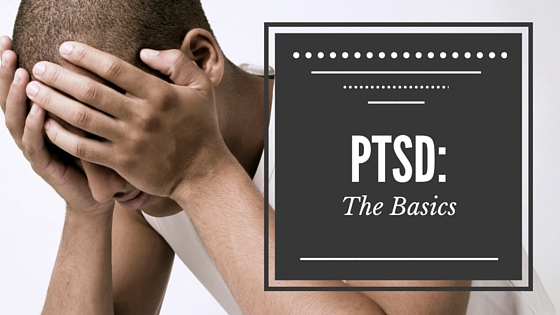In honor of Posttraumatic Stress Disorder (PTSD) Month, we’re taking a look at PTSD for the next several weeks. Today, we’ll define this condition clearly, providing you with typical symptoms that may be experienced by someone that has PTSD. Next week, we’ll review factors that may increase your risk of developing PTSD.
WHAT IS POSTTRAUMATIC STRESS DISORDER?
PTSD develops in response to a traumatic or life threatening event that is outside the normal range of daily life stress. It can arise due to trauma, such as:
- Combat and other military experiences
- Sexual or physical assault
- Violent or accidental death
- Serious injury
- Childhood abuse
- Serious accidents, like a car wreck
- Natural disasters
- Terrorist attacks
A traumatic event could be something that happened to you, or something you saw happen to someone else. Seeing the effects of a horrible or violent event can also be traumatic.
It’s normal to have upsetting memories, feel on edge, or have trouble sleeping after experiencing trauma. Initially, it may be hard to do normal daily activities, like go to work, go to school, or spend time with people you care about. However, after a few weeks or months, most people start to feel better.
If it’s been longer than a few months and you’re still having symptoms, you may have PTSD. For some people, PTSD symptoms may start later on, or they may come and go over time.
People who develop PTSD may have both psychological and physical symptoms. Additionally, the disorder often occurs in conjunction with other conditions, such as depression.
WHAT ARE THE SYMPTOMS OF PTSD?
Some symptoms of PTSD may become apparent right away; other symptoms may be delayed. The symptoms of PTSD may last from several months to many years and may include the following:
- Confusion
- Agitation; hyperarousal
- Fear and anxiety
- Feelings of helplessness
- Anger; irritability
- Sadness; depression
- Shock, apathy, or numbness
- Dissociation
- Withdrawal; detachment
- Flashbacks of the event
- Avoidance of specific places and situations
- In children, acting out of the event in play situations
- Nightmares
- Dread of the event happening again
- Fear of imminent death
- Less interest in activities that once were enjoyable
- Headaches, stomachaches, or other physical symptoms
- Insomnia
- Inability to concentrate
HOW IS PTSD DIFFERENT FROM NORMAL REACTIONS TO STRESS?
Not everyone who experiences or witnesses a life-threatening or traumatic act develops PTSD. After such an experience, most people have the symptoms of acute stress—beginning with a sense of numbness or shock and perhaps confusion, sadness, and anxiety. They may also have any of the symptoms in the preceding list. These signs of acute stress are normal. Talk to a doctor or mental health care provider, such as a therapist or counselor, if your symptoms:
- Last longer than a few months
- Are very upsetting
- Disrupt your daily life
GETTING HELP
If thoughts and feelings from trauma are bothering you, treatment can help — whether or not you have PTSD. Keep in mind that you don’t have to tackle it alone. Therapy services can be helpful as you begin to take small steps in your life towards meaningful healing. At TherapyWorks, our experienced therapists can help you implement relevant and effective solutions that you’re looking for.
And because convenience is important, our professional and responsive support team offers convenient scheduling options, evening and weekend appointments, and contemporary privacy practices.
We encourage you to take advantage of a free consultation in our Los Gatos or Santa Cruz locations. Contact us today and we’ll help you.
